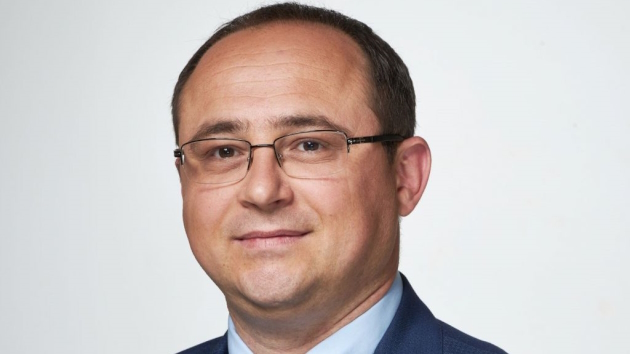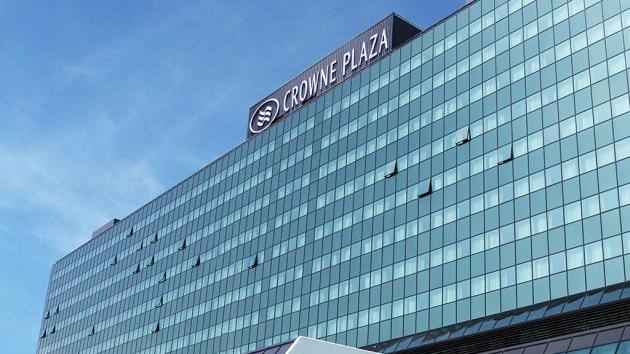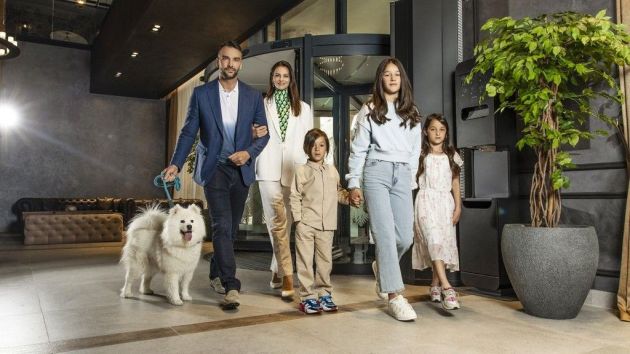What kind of personnel do we have in tourism - You can't find workers anywhere, and the salary is "even" EUR 500
 Sunday, 18.02.2024.
Sunday, 18.02.2024.
 12:26
12:26

Looking for a waiter, cook, receptionist, housekeeper - advertisements for jobs in the hospitality industry have become a constant in Serbia in the last few years, especially in the season when the few workers we have flock to the coast and other more lucrative destinations.
While the elderly fondly remember the former restaurateurs, their professionalism and attitude towards guests, young people are reluctant to seek work in tourism. And why should they when the average salary in cafes and restaurants is not even 50,000 RSD, while in the area of accommodation it is 68,325 RSD.
Our interlocutors, and we talked to everyone, including employers, professors, and representatives of the relevant ministry, agree on one thing - we lack workers in tourism, and that of all categories, from cooks and waiters to auxiliary workers. Despite the common belief that there are at least enough managers, there are not enough of them either, our interviewees agree. It is necessary to motivate young people to build a career in tourism, they also agree on that.
However, how to solve the problem of lack of (quality) labor force is already a matter of disagreement. Whether the state should subsidize employers, or whether the "bosses" should give up part of the profit and provide other concessions in order to keep the best workers, whether and how the education system should be changed - these are some of the points of contention.
The number of employees in tourism is growing - there are now 84,205 of them
According to the data of the Central Register of Mandatory Social Insurance, the number of employees in tourism is increasing year by year. In December 2023, the number of employees in tourism amounted to 84,205, which is 4.8% more than vs. the same period in 2022 and 9% more than in December 2021.
At the same time, the share of employees in tourism in relation to the total number of employees is increasing, from 3.6% in 2021 to 3.8% in 2023.
The majority of employees in tourism and hospitality are aged 30-54. 57.8% of the total number of employees in tourism are such. Profiles of all educational levels are represented, and as expected, women are slightly more numerous - there are 55.2% of them, compared to 44.8% of men.
State Secretary in the Ministry of Tourism and Youth, Uroš Kandić, reminds eKapija that the global market of travel and tourism lost 62 million jobs during the pandemic and that supply and demand on the global level are still out of balance. Serbia is no exception.
- In Serbia, it was also a real challenge for the entire hospitality industry to recover from the shock. Of course, there was a recovery, but the issue of finding staff on the market remained a priority. Especially since we have a continuous growth of tourist traffic in almost all destinations, which further increases the demand for labor force - Kandić notes.

According to him, various personnel are in short supply, starting from waiters, receptionists, cooks, to project managers and financial managers.
- This is not a problem only for restaurateurs, but for the entire tourism industry, since the lack of employees leads to an uneven quality of services at destinations. Even before the pandemic, in conversations with representatives of the economy, we were aware that human resources are a key link for the development of the entire sector, and today this issue is even more emphasized. As long as Europe has the problem of labor shortage, and estimates are that around 11% of jobs in tourism in the European Union will probably remain unfilled, Serbia is also threatened with a shortage of personnel - Kandić warns.
Everyone from chefs to IT managers is wanted
The Employers` Union reminds that Serbia is located at the crossroads between East and West, which attracts tourists and business travelers.
- The advantages for which we have always been known are hospitality and kindness, but also the offer of various sights. All of this would be great if we didn`t lack a trained workforce with the necessary skills, as well as infrastructure, which greatly affects the development of the mentioned sector - they note in the Union, adding that there is a shortage of staff in all activities of the hospitality sector.
According to them, perhaps the most pronounced need of restaurants, hotels and catering facilities is for qualified cooks, chefs and other gastronomic experts, but there is a very noticeable lack of auxiliary staff in the kitchen, as well as auxiliary staff in hotels.
- It is expected that in the near future there will be a strong demand for the following positions: head of the human resources service (there is a lack of HR service in general), kitchen manager (administration, supplies, people, standards, hygiene), quality manager, IT manager, secret guest - they emphasize in the Union of Employers.
The personnel are worse than before
Along with the lack of manpower, there is also a noticeable decline in the quality of personnel compared to previous decades. Prof. Dr. Drago Cvijanović, dean of the Faculty of Hotel Management and Tourism in Vrnjačka Banja, University of Kragujevac, notes that the staff from the end of the last century were better, more dedicated to work, more responsible. In other words, real professionals.
- Unfortunately, the same cannot be said for the current staff. The experiences of the School of Business Students (three days at school, three days at practice) were excellent. Admittedly, during that period, most students wanted to "learn a trade". I think that students at higher schools had a similar approach. I get the impression that the current personnel, although they have much better aids, are worse compared to those personnel from the 20th century - says Professor Cvijanović for eKapija.

He believes that today there are not enough leaders, real managers, mid-level personnel, but also quality "artisans".
- In other words, there is a lack of all the workers needed for catering, hotel and tourism. Perhaps the most lacking are quality tour guides and managers. Unfortunately, the salaries in this industry are much lower than in other industries, and everyone knows that. Due to higher incomes, our best workers go to the newly created countries of the former Yugoslavia or other countries that have higher salaries - Professor Cvijanović notes.
The average salary in cafes and restaurants is not even 50,000 dinars.
Solving this problem is high on the list of priorities of the line ministry, reveals State Secretary Uroš Kandić. As we learn, the line ministry is preparing a new tourism development strategy since the current one expires in 2025. The strategy will consider measures to preserve human resources in tourism, especially in the context of sustainable tourism development.
- The line ministry is trying to place this problem high on the agenda and to find an adequate answer together with other government departments, as well as interested parties in the economy. It is necessary to make the industry attractive for young people, but also to take advantage of digitalization as much as possible, which should first of all improve working conditions, but also partially solve the problem of lack of personnel - Kandić points out.
The question arises, however, why anyone would choose to work in tourism where wages are below average. The Republic Institute of Statistics does not have data on earnings in tourism, but the average earnings in the closest category, namely accommodation and food services, amounted to 52,891 dinars in November last year. Those who work in the field of accommodation earn 68,325 RSD, while those employed in the field of food and beverage preparation and serving have to be content with a modest 48,394 RSD. Both earn significantly less than the average employee in Serbia, who received 89,956 dinars last November.
It is no wonder then that in the season we have an exodus of hospitality workers to better paying destinations. However, the Union of Employers notes that workers abroad often work double shifts, without a break or a day off, and that there would be little difference in earnings if they worked the same hours in Serbia.
- Certainly, the economies of Western European countries cannot be compared with ours, nor can the burdens that employers in those countries have. We believe that changing legal regulations and abolishing parafiscal levies would significantly contribute to solving this problem, and state subsidies for employers, as well as for training employees in this sector, would be significant - they say for eKapija in the Employers` Union.
Eurostat data show that roses are not blooming in the EU either, as earnings in tourism are significantly below the average for the overall economy. In the three selected tourism industries (air transport, accommodation, travel agencies and tour operators), the average gross hourly wage was 13.3 euros in 2018, compared to the average for all areas of the economy of 15.7 euros.
However, the difference between the member states is huge, so the highest salary in Switzerland is EUR 28.2, in Denmark EUR 27.4, Norway EUR 26, and the lowest in Bulgaria EUR 3, Romania EUR 4.2, Lithuania EUR 5.1 . In Croatia, where our caterers go during the season, the average gross salary is 6.2 EUR per hour.
Employers dissatisfied with the education system
Education, along with salaries, is the second sore point of the lack of quality staff in Serbian tourism.
At first glance, it would seem that there are enough schools that educate young people for these professions. In addition to several high schools that specialize in tourism and catering, there are also seven faculties and vocational schools that train personnel for this field.
These are the Faculty of Economics and the Faculty of Geography of the University of Belgrade; Faculty of Tourism and Hotel Management in Vrnjačka Banja, University of Kragujevac; Department of Geography, Tourism and Hotel Management of the Faculty of Science and Mathematics, University of Novi Sad; Faculty of Tourism and Hotel Management of Singidunum University; Belgrade Hospitality College and Belgrade Tourism College, Academy of Vocational Studies Belgrade.
In the Employers` Union, however, they are not satisfied. As they say, our education system consults very little with the economy, and it is necessary to include the practical part in addition to the theoretical part so that young people can acquire concrete skills, through internships in hotels, restaurants and other tourist facilities.
They note that creating a stronger connection between educational institutions and the economy can help identify current needs, and practical experiences and advice from professionals can be invaluable.
- We expect that the dual system of education will contribute to the new generations acquiring skills during their education that are characteristic of some older generations of hospitality workers, and which are certainly necessary for the quality of service to be impeccable. Considering the international nature of tourism, strengthening language skills is very important, and it is necessary to pay considerable attention to increasing the number of foreign language classes in hospitality schools - the Employers` Union emphasizes.
A chef can (not) have a higher salary than a professor
The dean of the Faculty of Hotel Management and Tourism in Vrnjačka Banja also points to the poor connection between educational and business institutions. As he says, all business entities involved in hospitality, hotel and tourism should cooperate closely with all educational institutions, formally and informally.
- More frequent meetings to be hold with the support of chambers of commerce, formal and informal (shorter) education to be organized so that the existing workers can follow all the changes that are happening around the globe, as well as in our country - professor Cvijanović suggests.

However, apart from this, there is another group of problems, which is related to the education system itself.
- Unfortunately, the education system is permanently collapsing, precisely because of the high wage disparities in education and the economy. For example, the average cook has a higher salary than the highest salary in secondary education, and by God, in colleges too. We have come to a situation where it is very difficult to retain high-quality staff for teachers and professors, and yet teachers and professors should be of the highest quality precisely in education - Cvijanović notes.
How to motivate the youth? With wages, but also with flexibility
How, then, with all these problems and obstacles, to motivate young people to look for work in an industry that enthusiasts call the art of making unforgettable memories? Our interlocutors believe that it is a combination of factors, from salary increases and improved working conditions, to the flexibility of employers.
- Children who like traveling, contact with other people, have predispositions to learn foreign languages, like challenges, will surely "sail" into this activity and build their career. Realistic payment for their knowledge, dedication to the business and work, it is the best "lure" to attract them to get a job in tourism and build their career - says the dean of the Faculty of Hotel Management and Tourism in Vrnjačka Banja, adding that the interest of young people in tourism is not growing, but it is not decreasing either.
The professor also advises young people to develop their own business in this field, especially those from rural areas who have their parents`, grandparents`, agricultural holdings.
- I mean, first of all, the development of agritourism or any other form of rural tourism that has a comparative advantage in that village in relation to neighboring rural areas. This would significantly change the approach to this activity, as well as the situation of living and working in rural areas of Serbia - Dr. Cvijanović is certain.
Today, young people increasingly appreciate working from home, which is impossible due to the specificity of work in tourism.
When asked whether employers are ready for flexibility and some other concessions in order to attract and retain young people, the Employers` Union says yes. As they say, it is necessary to consider flexible options in order to adapt the working conditions to the young.
- In this sector, it is difficult to do, but if we want to survive, it is necessary to adapt. Introducing advanced technologies into the work process can attract young people who are already used to a digital lifestyle. This includes the use of modern reservation systems, online communication and the like. The creation of content (TV show and series), which shows the positive aspects of work in tourism and hospitality, using real workers as protagonists, can attract the attention of young people and encourage them to follow such a trend - suggests the Union of Employers.
Will we be served by robots in the future?
Despite all the problems, the hospitality sector in Serbia is keeping up with the most modern trends, believes the State Secretary Uroš Kandić. In support of this, as he says, is the growth in the quality of gastronomy, as well as the offer of accommodation facilities, which has raised the level of service.
- The presence of the Serbian gastronomic offer in the most prestigious Michelin guide, as well as in one of the three most famous gastronomic guides "Gault&Millau", is an excellent channel for changing perceptions and strengthening the reputation of Serbia as a destination. However, we must also bear in mind that the modern tourist wants to taste, in addition to international cuisine, the authentic gastronomy of the places he visits, indigenous varieties of wine and brandy and food that are competitive in price - says Kandić.
In addition to gastronomy, tourists today want a personalized approach. The modern guest often expects a personalized and efficient approach, fast communication via digital means, a high level of hospitality, a clean and safe environment, as well as flexibility when fulfilling personal requests, notes the Union of Employers.
But, despite the technology and the predictions that in the future tourism staff will be less and less important, because the time of contactless hotels is coming where we don`t see employees, robots that will serve food, we will still need workers in the future. This is confirmed by the latest data from Statista, which indicate that the number of workers in tourism worldwide will grow from 320 million in 2023 to 430 million in 2033.
- In the future, a greater impact of technological innovations in tourism, including contactless hotels and automation, can be expected. However, the role of people in providing unique hospitality and personalized experiences will continue to be important. Technology can improve efficiency, but the human factor still remains key to creating emotional connections and guest satisfaction - the Employers` Union believes.
The dean of the Faculty of Hotel Management and Tourism in Vrnjačka Banja is of a similar opinion, emphasizing that robots cannot "serve" all services in tourism. As he says, tourism is a specific activity, very heterogeneous, where the tourist expects not only to be transported, to have a room prepared for him, to be served food and drink, but also to have social contact with someone with whom he can "talk" about something.
- He needs someone to "humanely" welcome him and see him off. I am thinking especially about these special forms or types of rural tourism. In mass tourism, maybe robots will serve washing and ironing, preparation of ingredients for food, but the serving itself will still be in the hands of humans - concludes the professor. Dr. Drago Cvijanović.
M. Dedić

Click here to see the entire Special Edition Newsletter
"Tourism and hospitality - Meeting new trends"
 Fakultet za hotelijerstvo i turizam Vrnjačka Banja
Fakultet za hotelijerstvo i turizam Vrnjačka Banja
 Ministarstvo turizma i omladine Republike Srbije
Ministarstvo turizma i omladine Republike Srbije
 Unija poslodavaca Srbije Beograd
Unija poslodavaca Srbije Beograd
 Republički zavod za statistiku
Republički zavod za statistiku


 Izdanje Srbija
Izdanje Srbija Serbische Ausgabe
Serbische Ausgabe Izdanje BiH
Izdanje BiH Izdanje Crna Gora
Izdanje Crna Gora


 News
News












